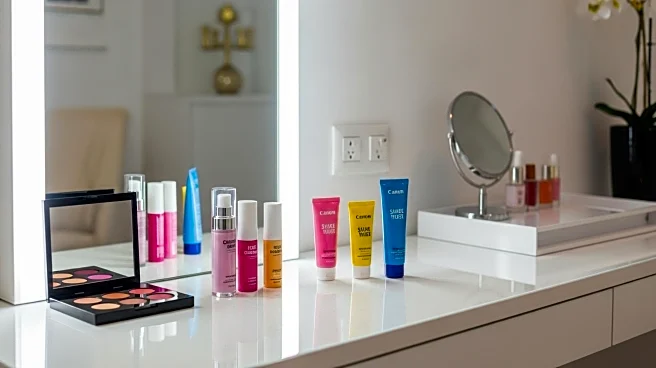What is the story about?
What's Happening?
Gen Z beauty brands such as Bubble, Starface, and Byoma, which initially gained popularity through TikTok-native aesthetics and playful marketing strategies, are now facing a shift in consumer expectations. As the oldest members of Gen Z approach their 30s, there is a growing demand for products that offer proven efficacy rather than just appealing visuals. These brands, which thrived on fast-paced, internet-driven marketing and crowd-sourced product development, are now tasked with proving the effectiveness of their products to maintain consumer loyalty. The playful and colorful packaging that once attracted younger consumers is now being scrutinized by those seeking more serious and result-oriented skincare solutions.
Why It's Important?
The evolution of consumer expectations among Gen Z has significant implications for the beauty industry. Brands that fail to adapt to these changing demands risk losing market share to more established companies that offer proven results. This shift highlights the importance of product performance and credibility in maintaining brand relevance. As Gen Z consumers mature, their purchasing decisions are increasingly influenced by the effectiveness of products rather than just their aesthetic appeal. This trend could lead to a broader industry shift towards more scientifically-backed and result-driven beauty products, impacting marketing strategies and product development across the sector.
What's Next?
To remain competitive, Gen Z beauty brands may need to adjust their strategies by focusing on product efficacy and expanding their reach into more premium retail spaces. This could involve diversifying product lines to include more serious skincare solutions and leveraging retail partnerships as marketing engines. Brands that successfully balance their youthful appeal with proven product performance are likely to retain consumer loyalty and continue to grow. The industry will be watching closely to see how these brands navigate the transition from trendy to trusted, as their ability to adapt will set the tone for future beauty market dynamics.
Beyond the Headlines
The challenges faced by Gen Z beauty brands also reflect broader cultural shifts in consumer behavior. As digital natives, Gen Z consumers are highly informed and discerning, often seeking transparency and authenticity from the brands they support. This demand for accountability may drive beauty brands to invest more in research and development to substantiate their product claims. Additionally, the emphasis on sustainability and ethical practices is likely to grow, as consumers increasingly prioritize these values in their purchasing decisions. The beauty industry may see a rise in collaborations with scientific experts and a focus on clean, sustainable ingredients as a response to these evolving consumer preferences.

















